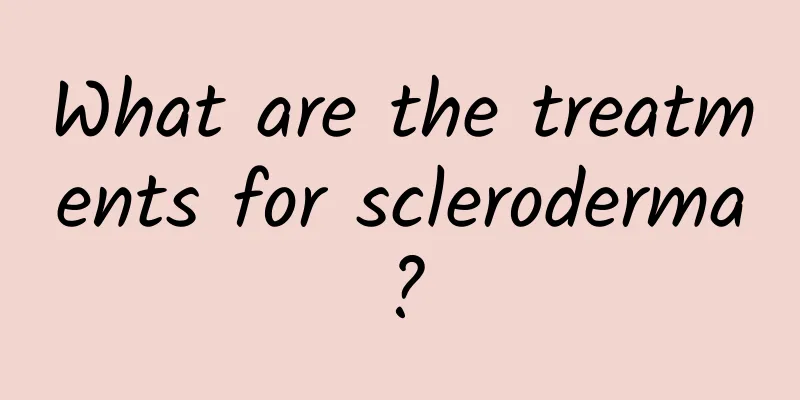What are the treatments for scleroderma?

|
Scleroderma is a common connective tissue disease in clinical practice. The disease mainly affects female patients, especially women of childbearing age. Scleroderma has a great impact on the human body, and the treatment of scleroderma mainly focuses on strengthening nutrition and also paying attention to removing infected lesions. 1. General treatment Remove infected lesions, strengthen nutrition, keep warm and avoid intense mental stimulation. (II) Vasoactive agents It is mainly used to dilate blood vessels, reduce blood viscosity and improve microcirculation. 1. Danshen injection Each milliliter is equivalent to 2g of the original drug. Add 8-16ml into 500ml of low-molecular-weight dextran and drip intravenously once a day. Ten times constitute a course of treatment. It can be used continuously or intermittently. It has certain effects on skin sclerosis, difficulty opening the mouth and swallowing, pigmentation, joint stiffness and pain, and Raynaud's phenomenon, but it is not suitable for people with bleeding tendency or poor renal function. 2. Guanethidine: The initial dose is 12.5 mg/d, gradually increased to 25 mg/d, and changed to 37.5 mg/d after 3 weeks. Effective for Raynaud's phenomenon (effectiveness is about 50%). 3. Methyldopa 125 mg, 3 times a day (or 1-2 g/d). Can suppress Raynaud's phenomenon. (III) Connective tissue formation inhibitors 1. Penicillamine 2. Colchicine 3. Centella asiatica (IV) Anti-inflammatory agents Glucocorticoids are effective for early symptoms of systemic sclerosis, such as inflammation, edema, and joints. Generally, prednisone 30 mg/d is used orally first, and then gradually reduced to a maintenance dose of 5-10 mg/d. Avoid use if proteinuria, hypertension or azotemia is present. (V) Immunosuppressants Drugs such as azathioprine (75-150 mg/d), chlorambucil (6 mg/d), and cyclophosphamide (50-200 mg/d) can be used, and have certain therapeutic effects on joint, skin, and kidney lesions. Combined use with glucocorticoids can often improve efficacy and reduce the dosage of corticosteroids. 6. Physical therapy It includes audio electrotherapy, massage and hot bath, among which audio electrotherapy has a better effect on this disease. The localized type can make it completely recover, and the systemic type also has the effect of softening the skin, improving tissue nutrition and healing ulcers. Initially, the treatment is given 1 to 2 times a day, each time lasting 20 to 30 minutes. After the condition improves, the treatment can be repeated every other day. The treatment time is longer. (VII) Others For example, blockade therapy, vitamin E, compound phosphatase tablets, and testosterone propionate can be used as appropriate. |
<<: How to treat allergic cough, experts recommend the best treatment
>>: How to effectively treat typhoid fever
Recommend
Quick relief from smoke dizziness
The so-called smoke dizziness refers to the pheno...
Heel pain Chinese medicine foot bath
There are many reasons for heel pain. Some people...
Chest pain, bloating, hiccups
In addition to cancer, many people are actually v...
Precautions for Chinese medicine enema
Enema therapy is a relatively convenient treatmen...
Are topical ointments for paronychia effective?
When paronychia first occurs, one side of the nai...
Symptoms of asthma
What we call asthma in daily life refers to bronc...
How to make the sauce for roasted bean curd
Bean curd skin is a food made from tofu. Compared...
The incubation period of gonorrhea
We may be harmed by many diseases throughout our ...
What causes shoulder and bone pain?
The scapula, also known as the scapula bone, is a...
How to treat phlegm nodules with traditional Chinese medicine?
Phlegm nodules are a very common phenomenon among...
What is the cause of the foreign body sensation in the neck?
In the ENT clinic, we often encounter patients wi...
What are the remedies for babies catching cold?
For young children, their bodies are usually not ...
Symptoms of intercostal neuralgia
Nerves are the most important component of the hu...
What medicine is most effective for bloating?
Stomach bloating is a problem we often encounter ...
What is Ophiopogon japonicus?
Ophiopogon japonicus is also a Chinese herbal med...









